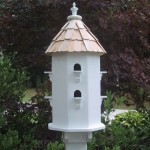Does Vinegar Harm Plants and Grass?
Vinegar, a common household item, is sometimes touted as a natural herbicide. However, its effectiveness and potential harm to plants and grass depend on several factors, including the type of vinegar used, its concentration, application method, and the targeted species. Understanding these factors is crucial for responsible and effective use.
Key Points: Vinegar as a Herbicide
- Acetic acid is the active ingredient.
- Higher concentrations are more effective.
- Effectiveness varies based on plant species.
The active ingredient in vinegar responsible for its herbicidal properties is acetic acid. Household vinegar typically contains a 5% concentration of acetic acid. Horticultural vinegar, available at garden supply stores, can contain concentrations up to 20% acetic acid. Higher concentrations are generally more effective at killing plants, but also pose a greater risk of collateral damage to desirable vegetation.
Key Points: Vinegar's Effect on Plants
- Disrupts cell membranes.
- Interferes with photosynthesis.
- Can cause desiccation (drying out).
Acetic acid works by disrupting plant cell membranes. This disruption interferes with the plant's ability to regulate water uptake and nutrient transport, ultimately leading to cell death. Additionally, acetic acid can interfere with photosynthesis, the process by which plants convert light energy into chemical energy. The combined effect of these disruptions leads to plant wilting, browning, and eventual death. In essence, vinegar acts as a contact herbicide, meaning it primarily affects the plant tissues it directly touches.
Key Points: Vinegar's Effect on Grass
- Effective on many common weeds.
- Can damage or kill desirable grass species.
- Repeated applications may be necessary.
Vinegar can be effective at killing many common weeds, especially young, actively growing weeds. However, it is non-selective, meaning it can also damage or kill desirable grass species. This is particularly true when using higher concentrations of acetic acid. Therefore, careful application is essential to avoid unintended consequences. For spot treatment of weeds in lawns, applying a small amount of vinegar directly to the weed, avoiding contact with surrounding grass blades, is recommended.
Key Points: Factors Influencing Effectiveness
- Vinegar concentration.
- Plant species.
- Environmental conditions.
Several factors influence the effectiveness of vinegar as a herbicide. The concentration of acetic acid plays a significant role. Higher concentrations are typically more effective, but also carry a higher risk of damaging surrounding vegetation. The targeted plant species also influences effectiveness. Some plants are more susceptible to the effects of acetic acid than others. Environmental conditions, such as temperature and humidity, can also affect vinegar's efficacy. Hot, sunny days tend to enhance its herbicidal action.
Key Points: Safe Handling and Application
- Wear protective gloves and eyewear.
- Avoid skin contact and inhalation.
- Apply directly to target weeds.
When using vinegar as a herbicide, it's important to follow safety precautions. Always wear protective gloves and eyewear to prevent skin and eye irritation. Avoid inhaling vinegar fumes, especially when using higher concentrations. Apply vinegar directly to the target weeds, minimizing contact with desirable plants. Avoid applying vinegar on windy days to prevent drift onto unintended areas. It's crucial to understand that while vinegar is considered a natural herbicide, it can still be harmful if not handled and applied responsibly.
Key Points: Environmental Considerations
- Biodegradable but can alter soil pH.
- Avoid overuse to prevent soil damage.
- Consider potential impact on beneficial insects.
Vinegar is biodegradable, meaning it breaks down relatively quickly in the environment. However, repeated applications, particularly of higher concentrations, can alter soil pH. While a slightly acidic soil pH can be beneficial for some plants, excessive acidity can inhibit nutrient availability and negatively impact soil health. Therefore, it's essential to avoid overuse and monitor soil pH regularly. Furthermore, consider the potential impact on beneficial insects and other organisms. While vinegar is generally less toxic than synthetic herbicides, it can still affect non-target organisms.
Key Points: Alternatives to Vinegar
- Hand pulling weeds.
- Mulching.
- Boiling water.
- Other organic herbicides.
Several alternatives to vinegar can effectively control weeds without potential harm to desirable plants or the environment. Hand pulling weeds, though labor-intensive, is a highly effective and environmentally friendly method, especially for small infestations. Mulching can suppress weed growth by blocking sunlight and preventing seed germination. Boiling water can be used to kill weeds in cracks and crevices. Several organic herbicides are available on the market, offering targeted weed control with minimal environmental impact.

Will Vinegar Kill Grass And Other Lawn Care Ideas

Did You Know Vinegar Can Replace Roundup

Will Vinegar Kill Grass And Other Lawn Care Ideas

Vinegar Weed My Experience

Recipe For Vinegar Weed Lovetoknow

Dangers Of Vinegar As Weed Rds Lawn Care

How To Use Vinegar Kill Weeds Get Green Be Well

How To Use Vinegar Kill Weeds On Walkways And Driveways

Does Vinegar Kill Weeds The Reality Of Using In Your Garden

Does White Vinegar Kill Weeds Why You Should Never Use On Your Lawn Express Co








